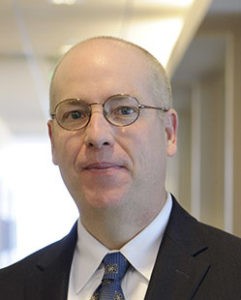A lot can change in 40 years. As a decidedly liberal and middle-aged me looks back at the Reagan Republican twenty-something I once was, I’m forced to ponder the road that led from there to here.
I worry that similar pondering is needed on the part of American Christians, especially those of a white evangelical, stripe. While never perfect in the past, how have we reached a point where our language and symbols are so readily coopted to spew hatred, violence and division? How have we become so infatuated with political influence that it is often unclear where the line is drawn between Christ and political party?

Chris Conley
I still stumble, but I think some of the signposts I’ve passed can help point a way forward. It’s clear that the road many of us are on now is a dead end.
The first signpost was a recognition that my Christianity was not, in fact, the Christianity of Jesus. The Christianity of my youth was pretty non-demanding, with Jesus basically acting as a “Get Out of Hell Free” card. Say the right things, get dunked and, when you die, you get to hang out on a cloud playing a harp rather than burning in Hell. Christianity was all about the past (what Jesus did back then) and the future (after I die) and wasn’t really concerned with the present.
I now see it completely differently. The truth of the empty tomb as historical fact is important, and I still believe it, and while playing the harp forever doesn’t excite me it beats roasting in flames. But, if I think the tomb is really empty, that Christ is really alive, and that his kingdom has come “on earth as it is in heaven,” then every day carries a present-tense choice to act on my faith or not.
Now matters. Eternally. I’m not called to be a Christian, but to Christian. I think we’re well past time for evangelicals to come to grips with this truth, to leave behind our “Left Behind” books, and to get busy making the current world better reflect the in-breaking of the kingdom that started so many Easters ago.
The second signpost was a recognition that unjust privilege exists and that I’m living it. While centuries of trying to dehumanize persons of color has left horrible scars on communities of color, it also has dehumanized the dehumanizers.
We meet heartfelt pleas of “Black Lives Matter” with snide retorts of “All Lives Matter” — not out of some benign universalism, but because we can’t stand the taste of saying that someone who isn’t white should be valued and isn’t. We don’t oppose persons whose sexuality differs from ours because of some burning desire to protect the sanctity of marriage; we just like having an issue we don’t struggle with that we can use as a bully pulpit to announce our own purity while ignoring the million and one ways we fall short every day.
“God wants us to use the platform of our privilege to speak for those who don’t share in it.”
If God wants anything from our present-day Christianing, God wants us to use the platform of our privilege to speak for those who don’t share in it.
Finally, and for some painfully, the third of the signposts involves a recognition that “patriotism” is often a fancy word for bigotry and selfishness. If all persons were lovingly made by God with God’s own hands in God’s holy image, there is no theologically safe ground to draw a line on a map and declare “us” and “them.” Leave aside that America can trace its path along the slave routes of the Atlantic and the Trail of Tears (and has found space to condemn the evils of other nations while treating the dropping of atomic bombs on civilians in Japan as somehow justified). Even if we buy into the ever-more-popular myth of a blameless America, there is no “them,” there is no “other.” To claim this is to deny Christ.
We are in a dark time, but Christ’s light as always is breaking in. The question is whether we’re willing to make the changes needed to throw open the windows rather than shutting the blinds.
Chris Conley is an attorney and graduate of the University of Georgia and of the Emory University School of Law. He and his wife, Mary, live in Athens, Ga., where both are members and deacons at First Baptist Church. They have one son, Aaron, who also is an attorney, and a miniature schnauzer, Oso, whose career path remains uncertain.


